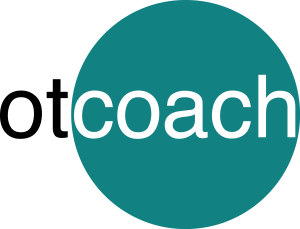This week I finally took a look at the International Journal of Evidence Based Coaching and Mentoring. I try not to look too often as I get rather excited and distracted! I’m always interested in what makes coaching “work” and what hinders it, but also how occupational therapists can use coaching to strengthen their practice and ensure relevance. It’s with that lens that I read papers such as this:
“Exploring Health Literacy and its Relationship to Health and Wellness Coaching” (Ahmann et al, 2020 – full citation below).
The paper investigates the relationship between health and wellness coaching (HWC) and health literacy. My mind substituted “occupational literacy”, which gave me some interesting thoughts.
Like all approaches, there are various theories and frameworks underpinning health and wellness coaching, including Growth Mindset, Motivational Interviewing, the Transtheoretical Model, the Theory of Planned Behaviour, Social Cognitive Theory, Social Learning Theory, Self-Determination Theory, and Self-Efficacy Theory. In OT we also draw on those, perhaps less so with the first two?
Health literacy is defined as “the degree to which individuals can obtain, process, and understand the basic health information they need to make appropriate health decisions” (Institute of Medicine Report). This would include the knowledge, motivation and competence to access and apply health information.
What about “occupational literacy”? That must be a thing right? But I am behind on Occ Science lingo, so off to Google I went! Here you get two main things 1) occupational literacy as the ability to competently read required work related materials (fair do’s) and 2) in her 2014 Ruth Zemke Occupational Science lecture, Elizabeth Townsend explores the concept of occupational literacy, which was more aligned to what I was seeking! It is still a developing concept, as far as I can see, so I’ll add my thoughts. To me, occupational literacy is how we, as individuals, use our occupational knowledge in our daily life – how we understand what we do, why we do, how we do things and what we think the outcomes of our doing might be. With this in mind, I wondered “How does an individuals understanding of “occupation” (occupational literacy) play out went they are being coached?
The authors of the health and wellbeing coaching paper name constructs related to health literacy, including: Communication and communication style; Empowerment as a process through which an individual gains greater control over decisions and actions affecting their health; Activation as the knowledge, skill, motivation, and confidence for managing one’s health and health care; Engagement comprising an interest in, giving attention to, or acting on managing one’s own health. The last one is interesting isn’t it? As OTs we hold the concept of engagement highly and know its centrality to pretty much everything. In terms of health behaviour change, I worry that not enough attention is paid to the benefits of not engaging or not wanting to “be well”. Engagement in different activities creates change and we need to look at the possible by-products of those changes. A positive change might result in unintended outcomes – knowing this can stop us pursuing change or sabotage our efforts unconsciously. When I coach, I always ask the question “what are the benefits of not changing?” or “what are the benefits of not achieving this?”. We need to unearth ambivalence towards change and help our clients shift the decisional balance in the direction they desire.
The key health and wellbeing coaching processes described by Wolever et al. (2017) are: - Making sense (comparing one’s current state with the envisioned or desired future).
- Resource development (understanding and analysing information whilst avoiding teaching, advising, or telling clients what to do).
- Actual health behaviour change such as establishing goals, plans and actions.
Can you see how this would relate to occupational literacy and occupational change? Making sense and establishing a desired occupational change, requires us to be able to see what is possible – how we want our daily life to be different. This requires a level of occupational literacy – actually knowing that we have options, how to make occupational choices and the awareness that life can be “done” differently.
To me, resource development in occupational therapy is under-developed: In the past I don’t feel we focus enough on helping clients find their internal resources. I have also often found myself running around researching and accessing external resources for people. Occupational literacy perhaps means having a level of insight and awareness into our occupational selves, how certain occupations help and hinder us, how occupations build a sense of self or build our physical/emotional wellbeing. We are not really taught this kind of literacy at school are we?
Behaviour change can be tricky and as OTs we can help people by adapting their environment or the tasks that they do, but significant occupational change like health behaviour change is another thing. It can be really challenging. It was one of the initial reasons I became interested in coaching and OT “my client won’t stick to the OT plan!”, “my client is poorly motivated!” etc.
In the aforementioned paper, the following table gives examples of coaching style questions, which could potentially promote (and explore) health literacy. As you read, think about how they could be adapted to be used in OT: Personal values: | What matters to you most about losing weight? | Goal setting: | So, you want to lose weight. What is your own target goal? Over how much time? | Self-defined issues: | You said you would like to discuss losing weight. When you think about that, what aspect seems most important to you to talk about now? | Empowerment: | Tell me about a tough challenge you have had in the past that you succeeded in managing… When you think about that, what strengths did you use there? How might you apply those same strengths now? | Self-confidence: | What is one small step you could take this week toward your goal – nothing too big or difficult – just something that seems very manageable and would move you forward? | Reinforcement: Self-efficacy: | High five! You met your goal for the week! What did you learn about yourself as you accomplished that? I really see your determination to come in for our appointment today. What other strengths and values of yours do you think are assisting you here? |
(Ahmann et al, 2020)
I think its easy to see how these questions might migrate into an occupational therapy framework but I wonder how broader questions might help explore a person’s “occupational literacy”?
“What helps create a meaningful and engaged life?
“What is possible for you in all this?”
“What do you feel is impossible? What makes you feel it’s impossible?”
“Are there any activities that you know make you feel well/peaceful/happier?”
“What skills might you need to help you make this change?”
“What information might you need to make this change?”
“What activities do you avoid, that you know might help you?”
“When things get tricky, what might help you keep going?”
“Do you know anyone else who has been through this? How did they go about it?”
“When people advise you to do certain things, what do you usually think about their advice?”
“When you had to make a change in the past, what did you do? What made it work?”
“If you wanted to start something new (yoga/pottery class/dancing) how would you go about it? What would you need?”
These questions come from my desire to explore what might affect a journey towards occupational change. With any change we need to be able to envisage a different future, have the skills, knowledge and resources to make the change and have the support to initiate and maintain the change. Both coaching and OT can work to make sure these elements are present and work together!
Happy exploring.
Ahmann, E., Leikin, S., Smith, K., Ellington, L. and Pille, R. (2020) ‘Exploring Health Literacy and its Relationship to Health and Wellness Coaching’, International Journal of Evidence Based Coaching and Mentoring, 18 (2), pp.83-100. DOI: 10.24384/9qz4-w404 (Accessed: 12 August 2020).
https://radar.brookes.ac.uk/radar/items/b545b921-cd73-4071-85a0-1480397e4181/1/ |


